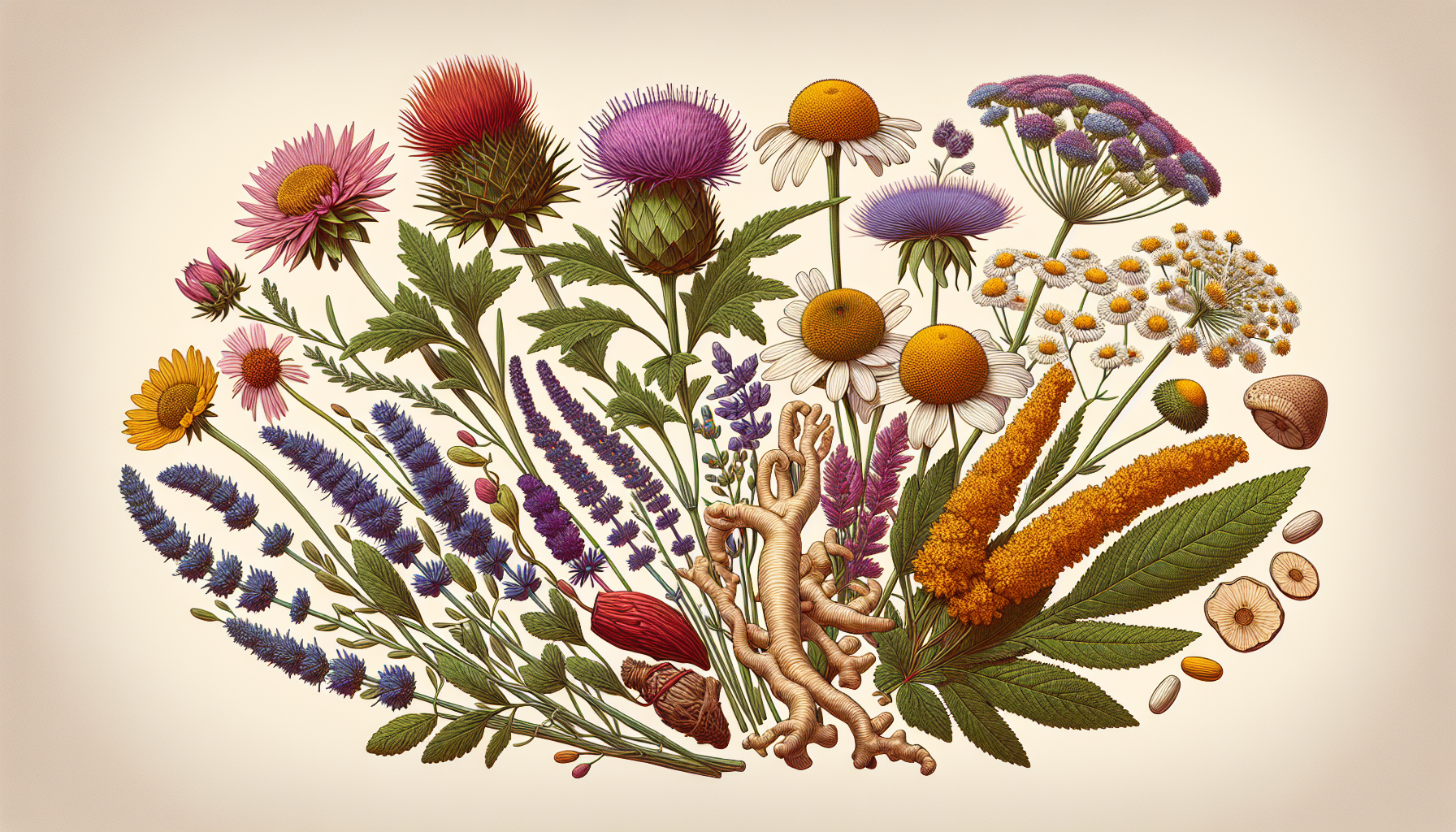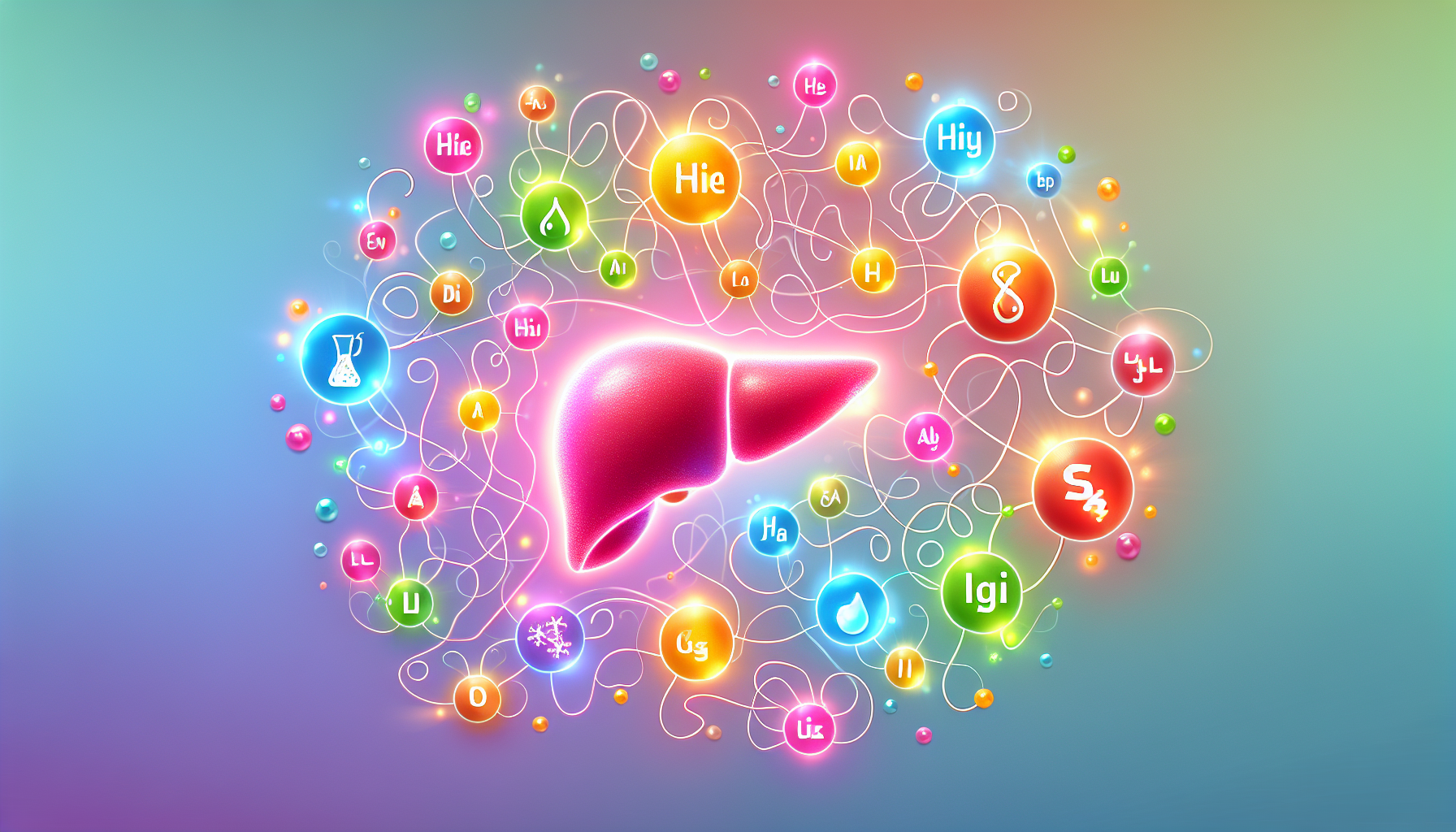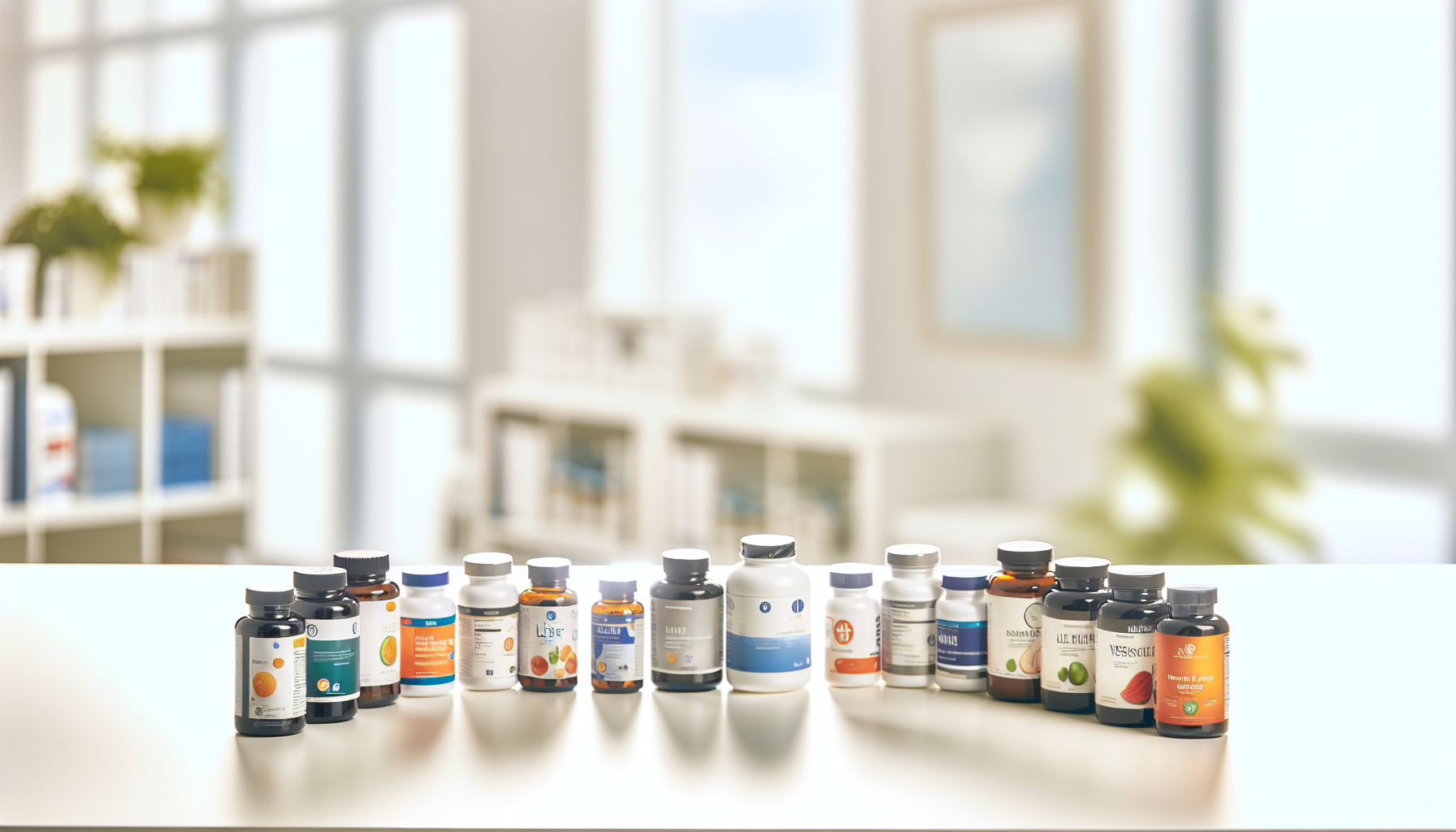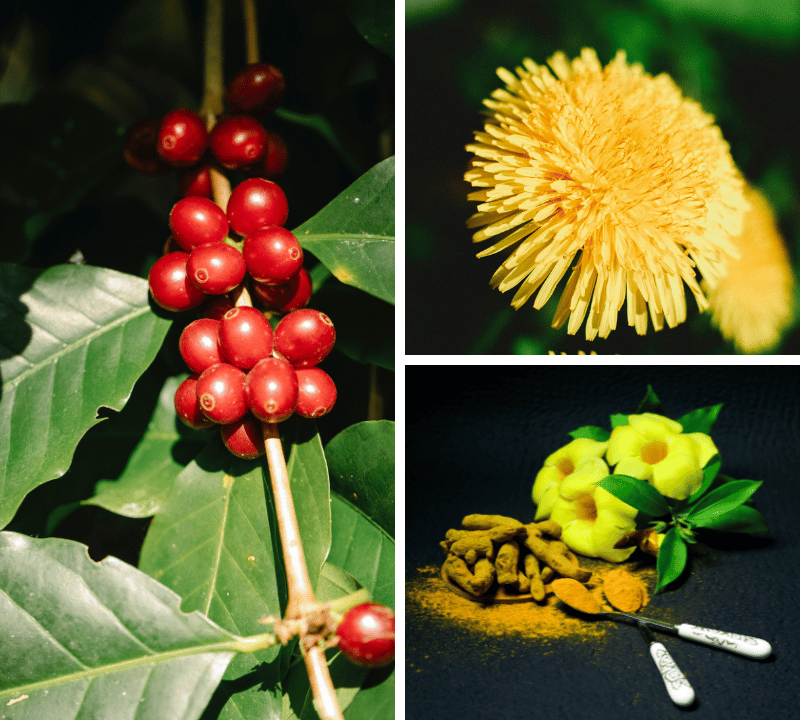In our quest for wellness, the liver emerges as a star player, tirelessly working behind the scenes to keep our bodies in harmony. Milk thistle, known scientifically as Silybum marianum, has long been the herbal remedy for nurturing this vital organ. But what if we told you that the world of liver health extends far beyond the reach of this Mediterranean native? Welcome to a journey of discovery, where we'll explore potent alternatives to milk thistle that could be even more beneficial for your liver health.
Imagine a natural arsenal equipped with herbs like dandelion root, turmeric, artichoke leaf, and the rejuvenating powers of green tea. Each of these carries its unique blend of antioxidant properties, ready to combat liver inflammation and support the regeneration of liver cells. The effectiveness of these natural wonders isn't just hearsay; numerous human studies and systematic reviews back up their health benefits, making them worthy contenders in the fight against liver problems.
But it's not just about the herbs. Our bodies are complex systems, and the liver is no exception. It craves a synergy of nutrients to function at its best. This is where the role of amino acids and vitamins becomes crucial. Think of Vitamin C and E as your liver's bodyguards, shielding it from oxidative damage and supporting its myriad functions. From processing toxins to metabolizing medications, the liver is a hub of activity that these nutrients help sustain.
While most milk thistle supplements have shown mixed results in clinical settings, delving deeper into the herbal world unveils a rich history of alternative treatments. These include herbs and a careful balance of nutrients, each playing a key role in maintaining liver well-being. Whether it's managing cholesterol levels, aiding in the digestion of fats, or protecting against liver damage due to alcohol or drug interactions, these alternatives to milk thistle open a new chapter in liver care.
As you continue reading, remember that the path to liver health isn't one-size-fits-all. Each body responds differently to treatments, whether it's a traditional milk thistle supplement or an alternative herbal remedy. These supplements' efficacy and safety, potential side effects, and interactions with other medications must be carefully weighed. And, as always, this exploration should be navigated with the guidance of a healthcare provider, especially if you're dealing with health conditions like liver disease, hepatitis, or even breast cancer.
So, are you ready to dive into this ocean of liver health alternatives? Let's embark on this journey together, discovering new ways to nurture and protect one of your body's most essential organs.
Key Takeaways
- Other herbs like dandelion root, turmeric, artichoke leaf, and green tea also offer substantial liver health benefits with antioxidant properties that can complement or serve as alternatives to milk thistle.
- Amino acids and vitamins are critical for liver function; their metabolism in the liver supports cellular health, and nutrients like Vitamin C and E are important for protecting against oxidative damage.
- The efficacy of herbal supplements, their safety, side effects, and potential interactions with medications should be carefully considered, preferably under the guidance of a healthcare provider, before being used as an alternative to milk thistle.
Exploring Herbal Remedies Beyond Milk Thistle

Milk thistle, or Silybum marianum, has a long history of use in traditional medicine, particularly for ailments related to the liver, bile, and intestines. Its potent antioxidant properties are primarily responsible for its liver-protecting benefits. But there’s more to the world of herbs than just milk thistle. Some other popular herbs for liver health include:
- Dandelion root
- Turmeric
- Artichoke leaf
- Schisandra berry
- Licorice root
- Burdock root
These herbs can be used individually or in combination to support liver function and promote overall health.
Dandelion root, traditionally used for treating liver and digestive issues, is a credible alternative to milk thistle supplements. It touts diuretic properties and contains compounds with anti-inflammatory effects, beneficial for conditions such as edema and high blood pressure. Dandelion root can be consumed in various forms: capsules, extracts, and teas, ranging from 500-2000 mg per day.
However, unlike milk thistle, which is famed for its hepatoprotective properties and ability to shield the liver from damage, dandelion root is known for its gentler diuretic or laxative effects. It’s beneficial for managing constipation or fluid retention, offering a complementary approach to liver health.
Unveiling the Power of Antioxidants in Other Herbs

The herbal world is a rich yet unexplored source of antioxidant properties. Some herbs that boast high antioxidant properties include:
- Rosemary
- Oregano
- Lemon balm
- St. John’s wort
- Saffron
- Garlic
- Green tea
These antioxidants are potent agents that counteract harmful free radicals in the body, thereby protecting the liver from damage.
Other herbs that have demonstrated significant antioxidant potential include:
- Turmeric: It has shown the ability to decrease malondialdehyde levels and enhance overall antioxidant capacity, acting as a potent antioxidant.
- Green Tea: The polyphenols in green tea are proficient in neutralizing free radicals.
- Ginkgo Biloba: It is a free radical scavenger that addresses oxidative stress like Milk Thistle.
These herbs provide antioxidant properties and offer a host of other health benefits, making them a worthy consideration for those seeking natural ways to support liver health.
The Role of Amino Acids and Vitamins in Liver Care

Certain amino acids and vitamins are indispensable for maintaining optimal liver function. The necessary amino acids for liver health are:
- Alanine
- Glutamate
- Aspartate
- Glycine
- Histidine
- Serine
- Threonine
In addition, vitamins A, B, C, and iron also play a significant role in liver health.
The liver’s metabolic processes heavily rely on these amino acids and vitamins. Amino acids are transformed into α-ketoacids through deamination reactions catalyzed by enzymes like glutaminase and glutamate dehydrogenase. The liver, central to nutrient metabolism, receives these amino acids as part of the digestive products, supporting liver cells.
Some nutrients that are beneficial for liver health include:
- Vitamins, such as Vitamin C, act as antioxidants, protecting against oxidative damage.
- Vitamin E has the potential to alleviate symptoms associated with nonalcoholic fatty liver disease.
- Amino acids play a part in liver detoxification, aiding in the detoxification of ammonia and the breakdown of bilirubin, thereby addressing liver problems.
Understanding Active Ingredients and Their Effects
Active components commonly found in liver supplements such as:
- Turmeric (an active component) - may help reduce liver inflammation
- Dandelion root
- Artichoke
- Selenium
offer benefits comparable to milk thistle for liver health. These active ingredients serve specific roles in promoting liver health.
For instance, silymarin, an active ingredient from milk thistle, offers antioxidant activity, supports cell repair, and alleviates inflammation with its anti-inflammatory properties. Similarly, artichoke leaf and dandelion root aid in detoxifying the liver, although further research is necessary to ascertain their comprehensive effectiveness.
Antioxidants in these alternative liver supplements play a crucial role in safeguarding the liver’s cellular structures from harm caused by free radicals and oxidative stress, contributing to liver diseases. This is akin to the benefits provided by most milk thistle supplements.
Safety Profile and Side Effects of Alternative Supplements

Consideration of safety and potential side effects is crucial when opting for alternative liver health supplements despite their beneficial effects. Dandelion Root, for example, can interact with medications metabolized by the liver, posing a potential risk for individuals with kidney disease. Certain individuals, such as those hypersensitive to the aster family of plants, pregnant and lactating women, and those with digestive system conditions, should refrain from using Artichoke Leaf extract.
Chicory Root, though used for appetite loss, upset stomach, and liver and gallbladder disorders, could lead to liver damage if used over an extended period. This involves disrupted bile acid metabolism and cholestasis, a risk that milk thistle may not pose.
When considering alternatives to milk thistle, it’s crucial to evaluate the safety profile and potential side effects of these supplements, preferably under the guidance of a healthcare provider.
Interactions with Medications: A Comparative Analysis
Like any other supplement, milk thistle can interact adversely with specific medications. Antipsychotics like haloperidol, chlorpromazine, fluphenazine, and promethazine, as well as drugs like deferiprone, indinavir, raloxifene, and simeprevir, are known to have negative interactions with Milk Thistle (Silybum marianum).
Moreover, other herbal supplements that are known for having significant interactions with medications include:
- Black cohosh
- Garlic
- Ginkgo biloba
- Ginseng
- Goldenseal
- St. John’s Wort
These supplements, like milk thistle, may support the growth of new liver cells and overall liver health.
It’s imperative to comprehend how alternative supplements interact with medications to ensure their safe and effective use. Always consult with a healthcare provider before starting any new supplement, especially if you are already on medication.
Real-Life Success Stories: Testimonials and Case Studies
In addition to scientific research, real-life success stories provide insightful information about the efficacy of alternative liver health supplements. For instance, Alternative Wellness Solutions has published success stories detailing the benefits individuals have gained from using these supplements. Many customers have shared their experiences, discussing these supplements' side effects, advantages, and overall efficacy.
Individuals who have used alternative liver health supplements, such as milk thistle, artichoke, and omega-3, have reported various health benefits. However, it’s important to note that these reports are anecdotal, and substantial scientific evidence to substantiate the effectiveness of these supplements is still lacking.
Successful case studies often highlight prevalent alternative supplements, such as:
- Ginseng
- Green tea
- Echinacea
- Glucosamine
- Omega-3 fatty acids
These testimonials and case studies provide a more relatable perspective, showcasing how these supplements have improved liver health in real-world scenarios.
When to Consider Alternatives to Milk Thistle
Certain circumstances might necessitate the consideration of alternatives to milk thistle. For example, individuals with:
- breast cancer
- uterine cancer
- ovarian cancer
- endometriosis
- uterine fibroids
Individuals should contemplate refraining from taking milk thistle.
In addition, lifestyle factors such as diet, weight management, and alcohol consumption can impact the efficacy of milk thistle, potentially necessitating consideration of alternative options. It’s important to remember that supplements are not a substitute for a healthy diet, and lifestyle changes are often the first line of defense in supporting liver health.
Excessive consumption of milk thistle could potentially result in decreased blood sugar levels in individuals with diabetes. It may also lead to side effects, including nausea, diarrhea, itching, and bloating. These side effects could indicate the need for alternative liver health supplements.
Navigating the Market: Choosing Quality Supplements

Finding the right product for liver health can sometimes feel like navigating through a maze of countless options in the expanding world of dietary supplements. But fear not! The key to unlocking the best choice lies in understanding what makes a supplement stand out regarding quality and efficacy. When it comes to liver health, certain ingredients rise above the rest. These include:
- Milk thistle
- Dandelion root
- Artichoke
- B vitamins
These components are not just random picks; they are celebrated for their beneficial impact on liver function and are often the stars in top-tier liver health supplements. From supporting liver cell regeneration to offering antioxidant and anti-inflammatory properties, these ingredients form the backbone of effective liver care.
But ingredients alone don't tell the whole story. When choosing a supplement, looking for quality and safety markers is crucial. This is where certifications come into play. Labels with B Corporation Verified, USDA Organic, and NSF Certified Supplements aren't just fancy stickers on the packaging. They are badges of honor, representing rigorous standards of quality, third-party verification, and ethical sourcing and manufacturing processes. These certifications assure you that your purchase is effective, safe, and responsibly made.
Suppose you're looking for exceptional Milk Thistle supplements that boast these powerful ingredients and carry these esteemed certifications. In that case, our article "The 5 Best Milk Thistle Supplements - Ranked and Reviewed" is your go-to resource. We've curated a list of five outstanding products that meet and exceed these stringent criteria. From potency to purity and ethical sourcing to environmental impact, these supplements represent some of the best in the market. Check it out here. 👇
Important Note and caveat: The FDA does not pre-approve dietary supplements for safety or effectiveness before they hit the market. Therefore, it's imperative to approach supplement selection with a discerning eye. Research thoroughly, understand your health needs, and consult with a healthcare provider to ensure your choice aligns with your health goals and medical history.
Time To Wrap Up This Discussion
In wrapping up our exploration of liver health, it's clear that while milk thistle stands tall with its storied history, it's just the tip of the iceberg in the realm of natural liver support. The herbal world is replete with options like the detoxifying dandelion root, the liver-friendly artichoke, and a host of vital amino acids and vitamins, all contributing to a holistic approach to liver well-being. This diverse array of supplements offers a rich spectrum of benefits and caters to different health needs and preferences.
However, the road to optimizing liver health is one of mindfulness and education. It's essential to navigate this landscape with an understanding of each supplement's safety profile, potential side effects, and how they might interact with other medications or existing health conditions. The choice of a liver health supplement is a personal and significant decision. It requires balancing efficacy with safety, tradition with science, and individual health goals with medical advice. Though intricate, this journey is worthwhile for its profound benefits for your liver health.
For those still intrigued by the enduring allure of milk thistle and seeking to delve deeper, we invite you to read our comprehensive article, “Unlocking Nature’s Secret: What is the Most Effective Form of Milk Thistle Supplement?” This piece is a treasure trove of insights, guiding you through the various forms of milk thistle supplements to help you identify the most potent and effective option for your needs. Armed with this knowledge, you’ll be well-equipped to make an informed decision in your quest for liver health. Click here to read more. 👇
FAQs To Close Our Discussion
What is better than milk thistle for your liver?
A silymarin-phosphatidylcholine complex may be better than milk thistle alone for your liver, as it is absorbed more easily and helps protect liver cells from toxins.
Is milk thistle or artichoke better for the liver?
Milk thistle is recommended as a better option for liver health, as other supplemental options may not add proven benefits and could potentially block the benefits of silymarin.
Is there a downside to taking milk thistle?
Some potential downsides of taking milk thistle include minor side effects such as bloating, nausea, and diarrhea, as well as potential adverse effects on pregnant women, individuals with diabetes, hormone-sensitive health conditions, and allergies to the herb. Knowing these factors is essential before considering milk thistle as a supplement.
Why are antioxidants important for liver health?
Antioxidants are important for liver health because they protect the liver's cellular structures from harm caused by free radicals and oxidative stress, contributing to liver diseases. This is essential for maintaining overall liver function.
What are some potential side effects of alternative liver health supplements?
It's important to be cautious with alternative liver health supplements, as they can have potential side effects such as interactions with medications metabolized by the liver, risk for individuals with kidney disease, and potential liver damage with long-term use. Be sure to consult with a healthcare professional before taking any new supplements.
Thanks for taking this journey to explore sources other than Milk Thistle for overall liver health. And, if you want to add to your library of knowledge, you should check out the other articles mentioned and linked above. It never hurts to add to your knowledge arsenal!
Also, please return soon to check out our next review of another incredible supplement – we’re always looking out for YOU!
*We are not qualified medical advisors. The content here is only based on our research and opinions and should NOT be used as a substitute for a healthcare professional's advice!











Member discussion